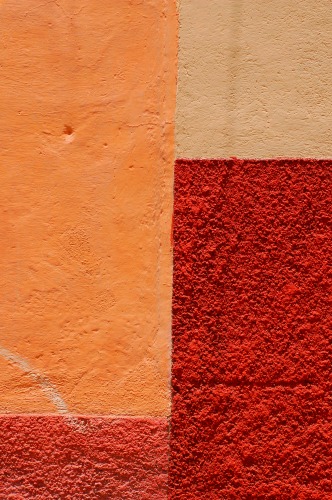 There was a time I hoped my prayers would travel from the Hebrew Academy’s makeshift synagogue in a Hartford basement to the Wailing Wall in Jerusalem. First, though, I wanted them to move just a few feet, out of the dingy cramped section where the girls sat and into the bright, sacred space I could glimpse through the small square cutout in the portable wall. That space—where short, doughy boys played with the fringes of their new prayer shawls while stumbling through a cluster of Hebrew blessings thanking God for not making them heathens, slaves, or women.
There was a time I hoped my prayers would travel from the Hebrew Academy’s makeshift synagogue in a Hartford basement to the Wailing Wall in Jerusalem. First, though, I wanted them to move just a few feet, out of the dingy cramped section where the girls sat and into the bright, sacred space I could glimpse through the small square cutout in the portable wall. That space—where short, doughy boys played with the fringes of their new prayer shawls while stumbling through a cluster of Hebrew blessings thanking God for not making them heathens, slaves, or women.
The year I turned 12—the year that, according to exacting Jewish law, I became a daughter of the commandments—was the year I got my period. The year I could be marked as ritually impure: tumah. It was also the year my science teacher, a pious woman who covered her hair as a sign of modesty, had a breakdown in class. “Menstrual blood,” she screamed, “is the reason women cannot say the blessings over the Torah. But,” she continued, her voice now a solemn hush, “it is the purest blood in the world.”
Under a harsh fluorescent reality, the boys were always lording it over us that they were allowed to touch and read from the Torah. It was only years later that I would unfurl another Torah in an egalitarian synagogue, chanting its verses all the way back to the girlhood I should have had.
My father had been against sending me to the Hebrew Academy. It was my mother who had insisted that I learn about traditional Judaism to appreciate my heritage. Dad came from a Russian-Jewish family that first integrated into American life by burnishing its surname until it was undeniably WASPY, whereas my mother had spent her young womanhood walking along the Malecón in Havana, meneando—swinging her backside just on the right side of decent for a Cuban-Jewish girl. Neither of my parents could have predicted that my unwieldy schoolgirl crush on a young rabbi—who taught me bible as the boys muddled through Talmud—would lead me to ultra-Orthodoxy, thereby undoing the hard, determined work of my father’s assimilation
By the time I was 14, I was hiding my body, tumah and curvy, in baggy long-sleeved shirts and skirts that fell below my knee. To avoid my parents’ non-kosher kitchen, I stockpiled crackers and cans of tuna that I ate on paper plates in my bedroom. That summer, I also sucked on Italian ices to stay kosher until I starved myself down to 80 pounds.
Heathen, Slave, Woman. Those three blessings further rendered me invisible.
As I anticipated becoming a wife, the thought of sex both terrified and thrilled me. In my new world, I imagined marrying young to get away from overbearing parents. But there would be consequences. I’d be a mother within a year of standing under the huppah—the marriage canopy—with a man I barely knew. I’d be obligated to purify myself monthly in a ritual bath—a mikveh—to resume sexual relations with him. For two tumah weeks of the month, I’d be forbidden to look into my husband’s eyes, hand anything to him directly or even touch him. It’s no coincidence that going from the mikveh to the marital bed was also the optimal time to conceive.
In school we learned that, in a pinch, a lake or an ocean was a natural mikveh. A husband could witness his wife immerse the three times required to ready herself for sex, or, God willing, for conception. But it was only permissible to be naked in front of one’s husband under the blackest night sky or in the darkest room.
I imagined that my groom would be a learned man with a long, scraggly beard. In private he’d radiate the color of the sun. His eyes would be a pretty sky blue. He’d thrill to hold my hand when it was permitted. Our sex, though proscribed, would be passionate. “You learn what pleases a man,” the woman in charge of teaching the laws of family purity let slip. In truth, I was a 14 year-old girl discovering my budding sexuality.
Heathen. Slave. Woman.
At 16, finally grasping that I would never count in ultra-Orthodox prayer quorums, I felt disembodied. My heart, though, still floated through the small square cutout, eastward. In the end, I fled the women’s section. I believed that my prayers, pure and whole, would reach Jerusalem after all.
___
“Heathen, Slave, Woman” is excerpted from Judy Bolton-Fasman’s recently completed memoir, The Ninety Day Wonder. Her work has appeared in the New York Times, The Rumpus, Salon, Modern Loss, Boston Globe and other venues. She has an essay in the Spring 2015 issue of 1966: A Journal of Creative Non-fiction

2 comments
Sandell Morse says:
May 14, 2015
This is the piece of Judaism I try to deny, but reading, “Heathen, Slave, Woman,” an essay so beautifully written, so thoughtful and so compassionate, i say to myself, “Yes, this, too is part of my tradition.” Thank you Brevity and thank you Judy Bolton-Fasman for this essay.
Pre-Shabbat Jewish Literary Links | ErikaDreifus.com says:
May 15, 2015
[…] the new Brevity magazine: “Heathen, Slave, Woman”—a powerful short excerpt from Judy Bolton-Fasman’s recently completed […]